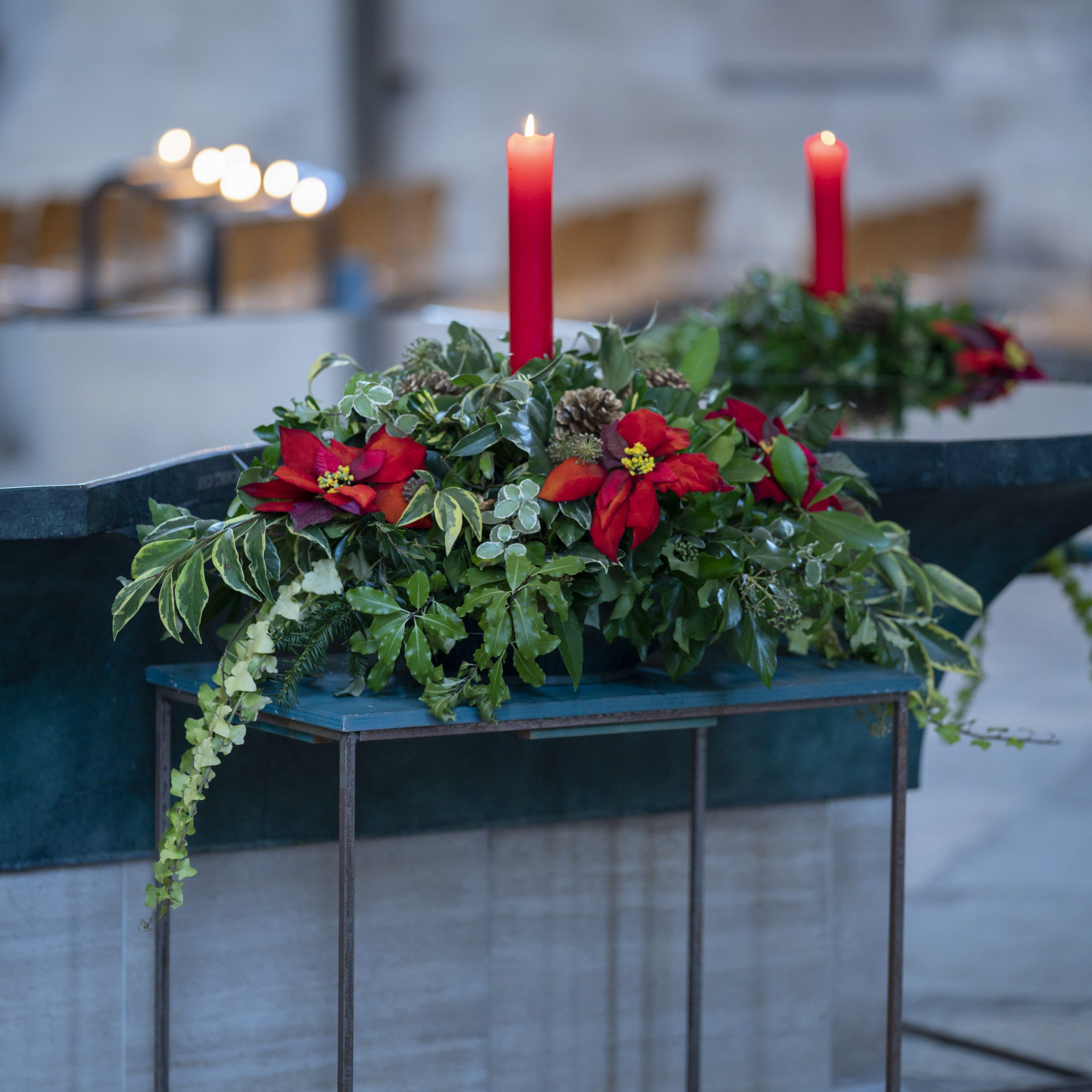The Second Sunday of Advent

A Sermon preached by Canon Edward Probert, Chancellor.
Sunday 4 December, The Second Sunday of Advent.
Isaiah 11.1-10; Matthew 3.1-11
We are in the last month of this calendar year, and are entering the second week of the new Church year. 2022 is beginning its descent into the historical record, where for British historians it will stand out for two peculiarities: the death of the late queen, and so the succession of a new monarch; and the revolving door at the centre of our government. So we had the remarkable coincidence of the end of the longest reign in our history with the shortest ever prime ministership. It’s natural, then, to reflect on the role of the ruler – whether that be as an exemplary figurehead, or as a decision-maker determining the course of the nation.
On the subject of rulers, the Old Testament scriptures offer rich seams to mine. The first and second books of Samuel, Kings, and Chronicles all dwell on this theme, which looms large also in the thinking of the prophets.
Today’s passage from Isaiah 11 offers a very particular perspective – it’s a vision of the ideal monarch, possessing the spirit of God, acting according to God’s purposes, defending the poor and meek; a vision in which all of creation is remade, with the wolf and the lamb, the leopard and the kid, living in perfect harmony. You don’t have to be a wildlife expert to notice that this is a rather remote picture; leopards and wolves are not noted for their vegetarianism.
This ideal, exemplary ruler, is descended from the root of Jesse – the line of David, the king who conquered Jerusalem, made it his capital, where the worship of God was focussed, and where earthly and divine rule were inextricably intertwined. This dynasty from David, which ruled for something like 400 years until it came to a full stop with Jerusalem’s conquest by Babylon in the 6th century BC – this was a ruling house that could not have had better PR.
It’s not universal to respect a divinely-blessed earthly ruler. In our day, Vladimir Putin receives the fulsome endorsement of the Patriarch of the Russian Church, yet I suspect no one taking part in this service finds that entirely credible. There were critics of the Davidic monarchs; prophets challenged the behaviour of rulers; and anyway the whole edifice came crashing down when Jerusalem fell, the Temple was looted, and the remnant of the ruling house was deported to Mesopotamia. So, when the Biblical histories of the monarchs were compiled, they had in mind both that catastrophe, and the vision of the ideal; and in their catalogues of kings, while picking out a handful of exemplary ones, they lay the blame on the long line of those who fell short.
Nonetheless, the vision of the ideal remained powerful and sustaining. Remember all the ways in which Matthew and the other evangelists point out that this was the descent of the carpenter from Nazareth; remember the shouts at Jesus entering Jerusalem many hundreds of years after the end of its original dynasty – ‘Hosanna to the Son of David’.
A vision can have immense and enduring power, even when it is repeatedly undermined by the practical inadequacy of its human exemplars. We don’t have to be delusional to find strength and hope in the vision of justice and peace prevailing, even if we are inclined to think those who govern tend to be inadequates, rogues, or buffoons. As the latter-day prophet John the Baptist pointed out, we cannot rely on our heritage to preserve us from the judgement of God. Small or great, weak or powerful, ruler or ruled – the vision of God’s just reign is a challenge to us all.
God save the King; God bless the government; God guide us in the ways of justice and peace.




